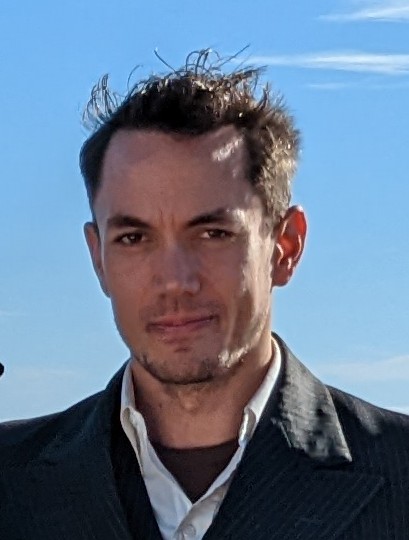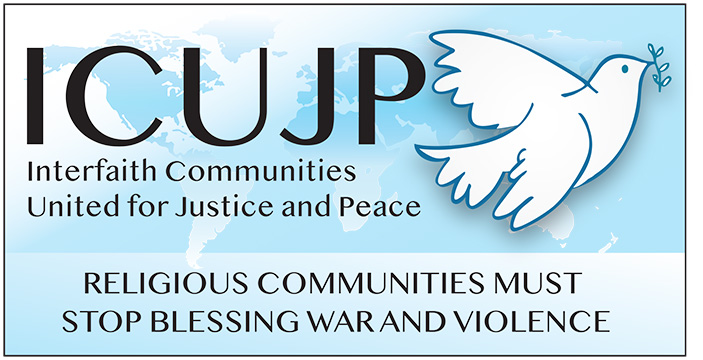For April Fool's Day, I'd like to share some stories I’ve
heard from Bert Newton's podcast "Parody and Subversion in the Gospel of Matthew."
First, I’d like to first share with you a new
paraphrase of the Gospel by James Martin, a Jesuit Priest. His dynamic,
paraphrase translation really makes this text come alive in a way that gets
right to the heart of the matter, so I’m going to begin by reading his
translation, beginning with verse 16 of Matthew 19:
The
Rich and Therefore Blessed Young Man
1. As
Jesus was setting out on a journey, a man ran up to him and knelt before
him, and asked, “Good Teacher, what shall I do to inherit eternal life?” 2. And
Jesus said to him, “What have you done so far?” 3. And he said to Him,
“Well I was born into a wealthy family, got into a good school in Galilee
because my parents donated a few thousand talents for a building with a
nice reed roof, and now I have a high-paying job in the Roman treasury
managing risk.” 4. Looking at him, Jesus felt an admiration for him, and
said to him, “Blessed are you! For you are not far from being
independently wealthy." And the man was happy. Then Jesus said,
"But there is one thing you lack: A bigger house in a gated community in
Tiberias. Buy that and you will have a treasure indeed. And make sure you
get a stone countertop for the kitchen. Those are really
nice." The disciples were amazed. 5. Peter asked him,
“Lord, shouldn’t he sell all his possessions and give it to the poor?” Jesus
grew angry. “Get behind me, Satan! He has earned it!” Peter
protested: “Lord,” he said, “Did this man not have an unjust advantage?
What about those who are not born into wealthy families, or who do not
have the benefit of a good education, or who, despite all their toil, live in
the poorer areas of Galilee, like Nazareth, your own home town?” 6.
“Well,” said Jesus, “first of all, that’s why I left Nazareth.
There were too many poor people always asking me for charity.
They were as numerous as the stars in the sky, and they annoyed me.
Second, once people start spending again, like this rich young man, the
Galilean economy will inevitably rebound, and eventually some of it
will trickle down to the poor. Blessed are the patient!
But giving the money away, especially if he can’t write it off, is a big fat
waste.” The disciples’ amazement knew no bounds. “But
Lord," they said, "what about the passages in both the
Law and the Prophets that tell us to care for widows and orphans, for
the poor, for the sick, for the refugee? What about the many
passages in the Scriptures about justice?” 7. “Those are just metaphors,” said
Jesus. “Don’t take everything so literally.”
Maybe
this isn’t exactly what Jesus intended, but I’d like to share with you
something that actually did occur.
On December 3, 2004, Jude Finistera,
spokesperson for Dow Chemical, the new owner of Union Carbide, appeared on BBC
World to announce Dow’s plan to liquidate Union Carbide to raise $12 billion to
compensate the victims of the 1984 Union Carbide disaster gas leak in Bhopal,
India
In 1984, a Union Carbide plant in Bhopal
suffered a massive leak which exposed hundreds of thousands of people to toxic
gases. The official immediate death toll was 2,259, but estimates are that
upwards of 16,000 people eventually died and over half a million sustained
injuries, many of them permanently disabling.
For 20 years, little had been done to
compensate the victims of that disaster. But now, Finestera proclaimed on BBC
World, Dow would use the $12,000,000,000 from the liquidation of Union Carbide
to pay the ongoing medical bills of 120,000 people who would need medical care
for the rest of their lives. In addition, he said that Dow would also clean up
the disaster site in Bhopal and release the full information on the chemicals
that had leaked into the community, two things that Union Carbide had never
done. And on top of all that, Finestera declared, Dow would also pressure the
U.S. government to extradite Warren Anderson, the CEO of Union Carbide in 1984,
to India to face charges for manslaughter.
Finestera optimistically predicted that
although the share-holders of Dow stock would take a hit, they would be proud
to be part of this massive compensation plan for the people of Bhopal because
it was the right thing to do.
And, as a result of Finestera’s announcement,
Dow stock plummeted by $2 billion.
But, then Dow issued a retraction…well, it
wasn’t really a retraction because Dow had not sent Finestera to make that
announcement on BBC World in the first place. In fact the man making the
compensation announcement on BBC World was not really Jude Finestera. His real
name was Andy Bichlbaum, a member of the prankster group called “The Yes Men.”
The Yes Men have been pulling these sorts of
pranks for 20 year now. They often masquerade as spokespersons for large
corporations that need to be held accountable for crimes against humanity.
The Dow Chemical/Union Carbide prank forced Dow
to tell the world that it had no intention of paying for the medical care of
the victims of their disaster or fully cleaning up the site or fully disclosing
the list of chemicals released into the community, or allowing any Union
Carbide executive in the U.S. to face justice.
In addition to forcing Dow to admit these
things publicly, the Yes Men had also presented, if only for a few hours, a
vision of what could happen if people choose to do the right thing, how we
might be able to turn our world around and make it a world of justice and mercy
rather than one in which the powerful get away with mass murder.
You can read more about the Yes Men and even
see videos of them in action at TheYesMen.org.
Through their antics, the Yes Men participate
in a long tradition of tricksterism. Tricksterism stretches back through and
before antiquity and has been documented in many societies around the world. In
the tradition of tricksterism pranks are played in order to reveal something
that has been concealed by the powerful.
I hope that on April Fool’s Day, we remember
that what seems foolish to the world is really the wisdom of God.







